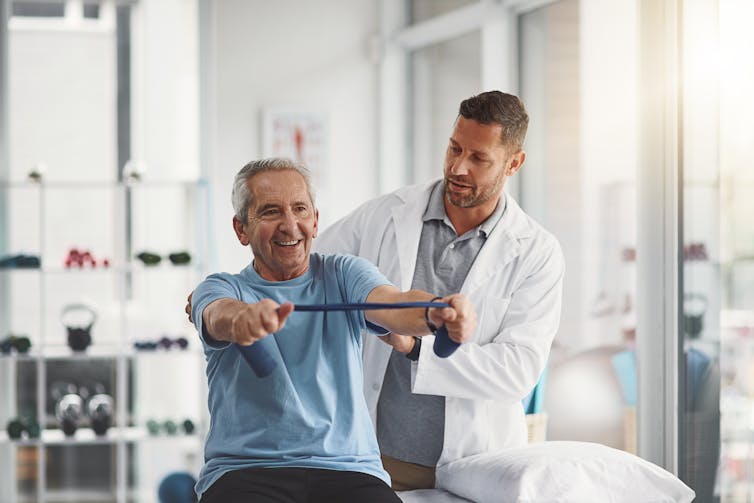
For individuals from diverse backgrounds, managing heart disease effectively often depends on more than access to medical care — it requires culturally relevant education. Recent research reveals that adapting patient education to match cultural contexts can significantly improve health outcomes, offering hope in the fight against the world’s leading cause of death: cardiovascular disease.
Heart disease causes 17.9 million deaths each year and accounts for a substantial economic burden globally. Ethnic minorities and migrants in western countries disproportionately experience worse outcomes. Research suggests that cultural and language barriers, as well as low health literacy, hinder their ability to understand and manage chronic conditions.
This is where culturally tailored patient education comes into play. Traditional health education often adopts a one-size-fits-all model, but a recent scoping review of five studies with 938 participants found that interventions tailored to individuals’ cultural and linguistic needs produced positive outcomes.
These participants, from diverse communities — including Hispanic, Italian and Greek backgrounds, as well as individuals with low incomes — reported improved self-care habits, better knowledge of heart disease, and even reductions in cholesterol levels and weight.
Table of Contents
How tailored education works

(Shutterstock)
Culturally relevant education goes beyond translating medical information. It recognizes and respects cultural differences, tailoring programs to align with patients’ beliefs, languages and preferences. For example, a study included in the review involved phone-based coaching for Italian, Greek and English-speaking patients with coronary heart disease.
Interestingly, the outcomes varied by group: Italian-speaking participants were more likely to achieve waist circumference goals, while Greek-speaking participants were less successful. This variation underscores the complexity of cultural influences on health behaviours.
These differences suggest that the success of health interventions isn’t just about access to information but also how well the education resonates with cultural norms and lifestyle practices. Recommendations that align with familiar dietary habits or community values may be more effective. For example, Italian patients may have responded better because the program emphasized foods or lifestyle choices culturally meaningful to them.
Health literacy as a barrier
A key takeaway from the review is the role of health literacy beyond the ability to read or understand medical jargon. Health literacy involves navigating health-care systems, evaluating information and making informed decisions. For patients facing cultural and linguistic barriers, low health literacy can be like trying to solve a puzzle with missing pieces and instructions in an unfamiliar language.
Culturally tailored education addresses this by building trust, ensuring communication is clear and adapting learning strategies to meet the needs of diverse communities. It also empowers individuals to take control of their health within their own cultural framework.
Strategies for culturally relevant interventions

(Shutterstock)
Tailoring education requires creativity. One effective method involves using oral storytelling, which can resonate in communities where narratives play an essential role in passing down knowledge. Other interventions include visual aids, videos and hands-on activities for patients with different learning styles.
Language accessibility is also crucial. Health materials must not only be translated but adapted by interpreters who understand both the cultural context and medical terminology. This ensures that patients receive meaningful information rather than direct translations that might not carry the intended message.
The importance of community involvement
Successful culturally tailored programs are built in partnership with the communities they serve. Engaging communities from the outset fosters trust, reduces power imbalances, and ensures that interventions reflect local knowledge and experiences. However, building these relationships takes time and genuine commitment — especially in communities with histories of marginalization or mistrust of health-care systems.

(Shutterstock)
Establishing partnerships with communities involves actively listening to their needs, co-designing interventions and evaluating outcomes collaboratively. For instance, health-care providers working with Indigenous or immigrant populations might incorporate their input at every stage, ensuring the program respects cultural nuances.
The way forward
While the initial findings from this review are encouraging, the studies reviewed were relatively small, and more robust research is needed to confirm their effectiveness across larger populations. Consistent methodologies and larger sample sizes will help researchers understand which strategies work best and how they can be adapted to different communities.
Despite these limitations, the evidence points to a promising future for culturally tailored education in cardiovascular care. Moving away from standardized approaches to patient education and embracing cultural diversity can empower patients to better manage their health and improve their outcomes. This shift requires health-care providers to invest time and resources in building trust with communities and understanding their unique needs — but the potential benefits are immense.
As cardiovascular disease continues to affect millions worldwide, adapting education to reflect cultural realities offers a practical, patient-centred strategy for improving health outcomes. By listening to the communities they serve, health-care providers can create interventions that not only inform but also inspire patients to lead healthier lives.
![]()
Gabriela Ghisi receives funding from the Canadian Institutes of Health Research (CIHR).























